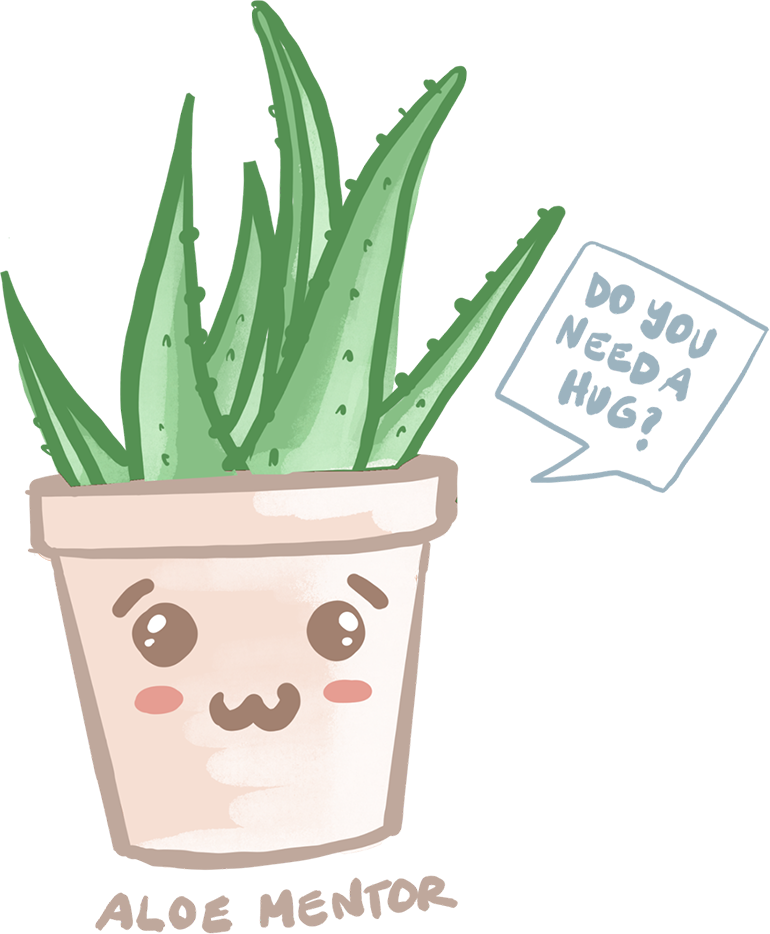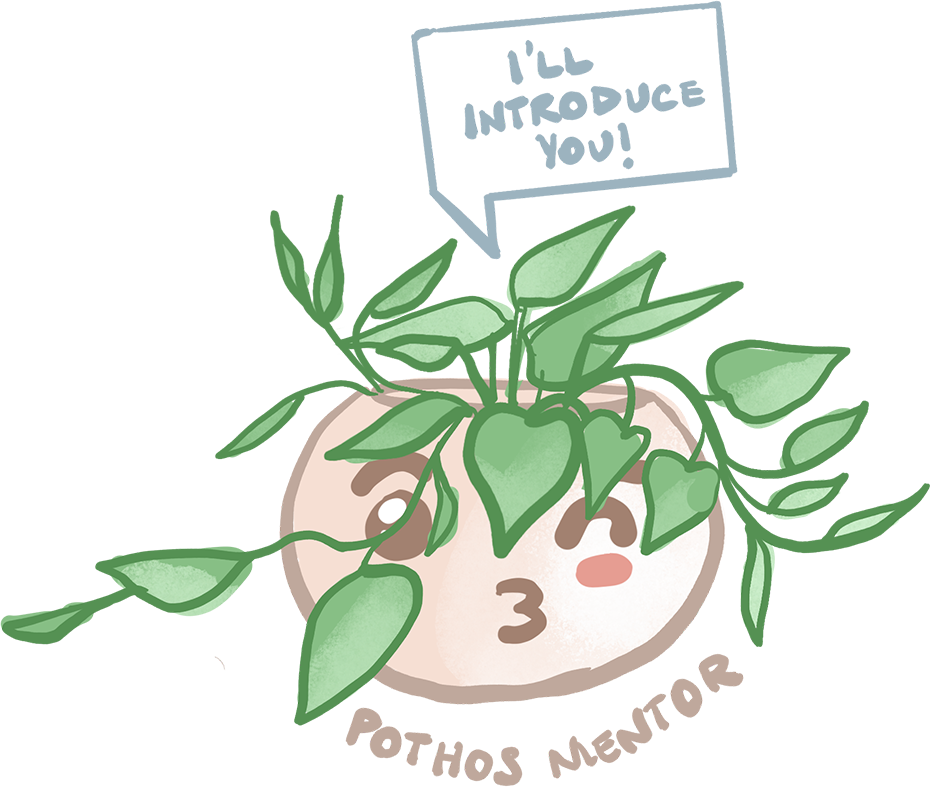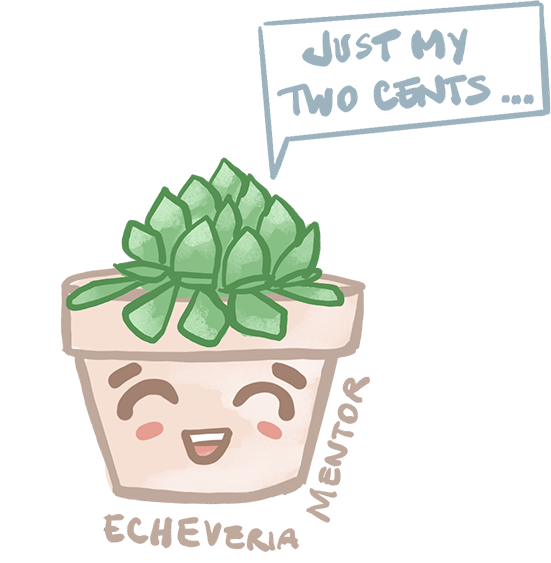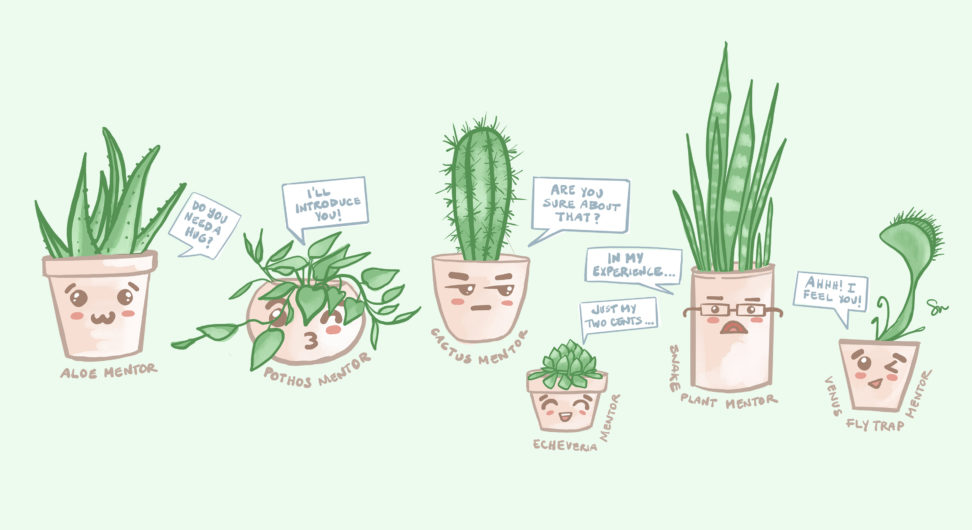Who Is The Plant Mentor You Need?
In the great garden of life, I’ve been blessed with many mentors in my career — people who had the grace and care to give their time to invest in me and my professional development when they weren’t even getting paid to do it! It’s because of what these people have modeled for me that I now have a really keen interest and drive to pay it forward by mentoring others.
On the flipside, though, I have heard unfortunate stories of mentor-mentee relationships that weren’t very fruitful or conducive to growth. Typically, this situation arises when the pairing feels contrived or forced (like when employers matchmake mentor-mentee pairs together without considering personality types and professional goals).
Knowing the type of mentors we are and the type of mentors we currently need is like knowing how much sunshine we can tolerate and how long we can put up with having soggy roots. Many of us just thrive in different conditions than others.
So what is the key to a mutually beneficial and rewarding mentor-mentee relationship?
To put it in gardening terms, it’s kind of like knowing the right growing conditions needed for efficient, bountiful growth, rather than sluggish, meandering, and sometimes frustratingly stagnant non-growth. Knowing the type of mentors we are and the type of mentors we currently need is like knowing how much sunshine we can tolerate and how long we can put up with having soggy roots. Many of us just thrive in different conditions than others.
Aloe

The medicinal uses of the aloe plant are legendary, from its gel being used to relieve sunburns to its juice causing blood sugar levels to fall. This is a plant that is nourishing and healing! And an aloe-mentor also similarly serves as a salve (for all the times you might have felt wounded or stung in the course of work!).
An aloe mentor is a great sounding board because they are great empathizers. They will connect with their mentees on an emotional level and are very good at making people heard. This is valuable because sometimes we all just need to vent — or a hug.
However, an aloe mentor is not as good at holding someone’s nose to the grindstone. They don’t like to be the bad guy either, so sometimes they have a hard time sharing truths that they might perceive as too harsh or brutal — and their version of brutal tends to be stuff like, “It would be great if you could maybe come to our meetings on time?”
They are very sweet people though, and if empathizing with colleagues is
something you struggle with and would like to improve upon, maybe an aloe mentor is for you?
Snake Plant

Snake plants (or sansevieria) have a reputation for being virtually indestructible. They prefer sunlight, but you can literally leave them in a dark room with no water for weeks and they will still be kicking with their spiky and stately leaves. They also live a long time — I have heard stories of people inheriting snake plants from their grandmothers.
Snake plant mentors will survive the apocalypse. They will still be alive when all of their peers have perished. Because of this, they tend to be very wise, very chill mentors. It’s hard to shock a snake plant mentor with your zany stories of accidental incompetence, because they will just lightly shrug it off and — say a variation of “been there, done that, survived it — and you will, too.”
Snake plant mentors have a lot of organizational knowledge — information gained from years of experience and immersion in a craft, an organization, or a discipline. This is the kind of mentor you aspire to·become just like — and you will probably find them in the upper levels at your job.
The shortcomings of this mentor include their comprehensive yet very polite disinterest in your hysterics — so if you are a very emotive communicator and require reciprocation, a snake plant mentor might occasionally leave you frustrated because you feel unheard.
But if you want to go guts-deep in something process-oriented or want some insight on
complicated office politics, a wise snake plant mentor might be your match.
Pothos

Pothos are fast-growing vines that are very adaptable to all sorts of conditions and have super pretty, lush foliage. They are friendly looking and love to loop and curl and intertwine themselves around all sorts of things.
A pothos mentor is a serial networker. This is the kind of person that knows everyone and their mother, and their strength is introducing you to opportunities and people in their network as well as helping you gain access to whatever resources that you may need. Pothos mentors tend to be entrepreneurs — or they work in some sort of sales job. They are almost always charismatic and have a really disarming and charming conversation or speaking style.
Pothos mentors will never be the type of people who can sit down and teach you the ins and outs of Salesforce. They might actually not know how to use it themselves. But they are the kind of people who will coach you on how you present yourself, how you carry yourself, and what you can do to optimize how you come across.
However, they are not always very detail-oriented, so a pothos mentor might carelessly just throw you into the deep end at a networking event — so they tend to best be paired up with a fellow extrovert, or at least an introvert that is going into the mentor-mentee relationship with open eyes and a strong conviction to learn, adapt, and do very uncomfortable things — like talking to fifty strangers in an hour!
Cactus

Cacti come in a variety of looks, shapes, colors, and sizes, but one unifying aspect of all cacti is that they are great at conserving water and being self-sustaining — and they are often very prickly!
Cactus mentors are good for perfectionists who want to get even more perfect — or for people who have really thick skin. Cactus mentors are really great at looking at a person and picking out flaws (also known as areas of improvement!) pretty quickly. They are blunt in their communication style because they don’t like ornate or overly flowery language — and for many people, their very specific, detailed, yet efficient communication style can come across as a little mean (but cactus mentors honestly think they are just being honest, direct, and fair).
Cactus mentors also have a gushy, fleshy center underneath all of the spines. They are
ultimately very caring people who tend to be very invested in the growth of their mentees and they show their care through their thought processes and the depth of their answers and consideration. Just maybe wear some gloves when you handle a cactus mentor?
Echeveria

You see these pint-sized little succulents in a lot of terrariums or in little pots on the tabletop. They are cute, they are approachable, they are easy to keep alive.
A common misconception is that mentorship has to be upwardly hierarchical and that mentors are always older and more established than their mentees. However, there is what some people call “reverse mentorship,” where someone more established in their career gets advice, perspective, and counsel from someone who has logged in far fewer years. Echeveria mentors help those of us who have been long-mired in our stale way of doing things break out of patterns and look at things with fresh eyes.
Echeveria mentors are good at offering very different perspectives and ways of doing things. They are typically very energetic and full of ideas — some of which aren’t quite fully baked, but their strength is creativity and outside of the box thinking, versus tactics and logistics. They are good paired up with long established individuals who might be feeling listless and bored in their work.
Venus Fly Trap

How often do you run into a carnivorous plant that catches insects and spiders and then consumes their lifeblood slowly but surely at someone’s house? Venus fly traps are totally unique and specific — there are few like it in the world.
Venus fly trap mentors are identity mentors, which are mentors that have very similar lived experiences with their mentees. For instance, a real issue that some people have in work is maybe navigating white-and cismale-led spaces and organizations when they are non-binary people of color. A Venus fly trap mentor knows the nuances, difficulties, and challenges that their mentee is experiencing and, with their years of extra experience, can help advise, guide, and also support their mentee as they work through “traditional” work environments.
Venus fly trap mentors aren’t a type of mentor that everyone needs — but they can be
invaluable to someone who has struggled in the past with other mentors because of divergent backgrounds. This one might take some work to seek out and find, but the effort is well worth it!
—
Some final thoughts for finding a great match:
For mentees, they need to stay grounded in self-awareness (knowing your working, communication, and processing styles and where your shortcomings might be) as well as having clarity in what you’d like help from a mentor in accomplishing (because after all, one person can’t possibly do and be everything for us).
For mentors who may be more developed in their careers, I think it’s important for them to understand their ideal conditions for work and also the boundaries of their expertise. That experience will come in handy when gauging whether they are the right mentor for a mentee.
Good luck out there!
This work is licensed under a Creative Commons Attribution-ShareAlike 4.0 International License.


